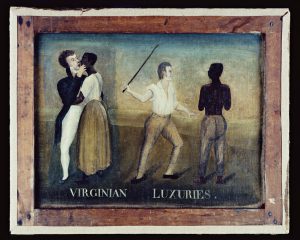Ester García will give a talk in the seminar series “La sexualidad en la historia”
which is organized by Instituto Interuniversitario “López Piñero” with the “Departament d’Història Medieval i Ciències i Tècniques Historiogràfiques” of the Facultad de Geografía e Historia (UV). 6 April 2020 at 12 pm in Salón de actos of the Instituto “López Piñero” (Palau de Cerveró).
 Title of Ester García‘s talk: “Imaginarios del deseo: raza, género y sexualidad en el siglo XIX”
Title of Ester García‘s talk: “Imaginarios del deseo: raza, género y sexualidad en el siglo XIX”
More information: Instituto Interuniversitario “López Piñero”.
Watch her seminar on Facebook
Cancelled due to COVID-19:
Elena Serrano’s talk. Title: “To be in love in the XVIII century: Physiology, Appearance and Gender”
In 1767, the Spanish Benedictine monk, natural philosopher, and best-seller Benito J. Feijoo gave a good piece of advice to his numerous followers: a cure for an unwelcome love. One had to counteract the strong love currents that shook nerves and organs with another one that provokes horror. This could be done by associating the image of the lover with something dreadful. In Feijoo words: ‘a wave breaks the impetus of another wave’. The cure was based on an undulatory theory of passions, in which the imagination really “see” the images, connecting physically nerves, organs, and soul. My paper discusses this game between appearances, physiology and amorous passion and the consequences for the relationship between sexes. Beyond its historical importance, the physiology of passions in the 18-century teaches us in times of Tinder and MeToo how the ways in which we imagine the workings of our body makes us feeling different, and has crucial results for our sentimental lives, sexual identities and the organisation of societies.
